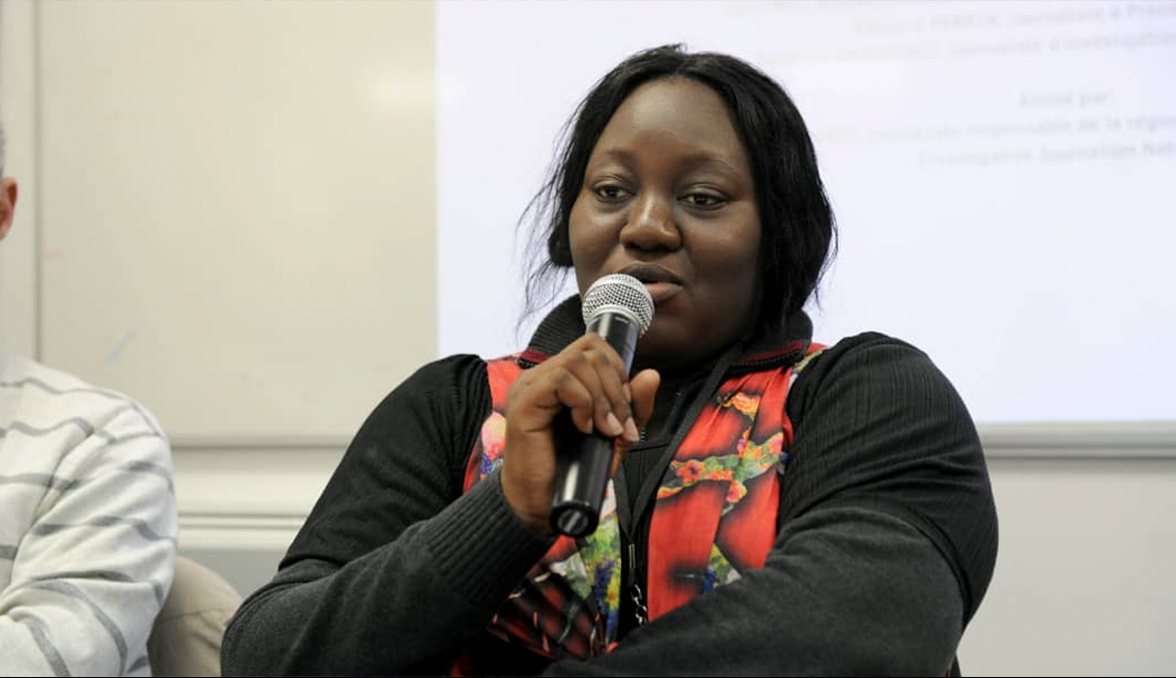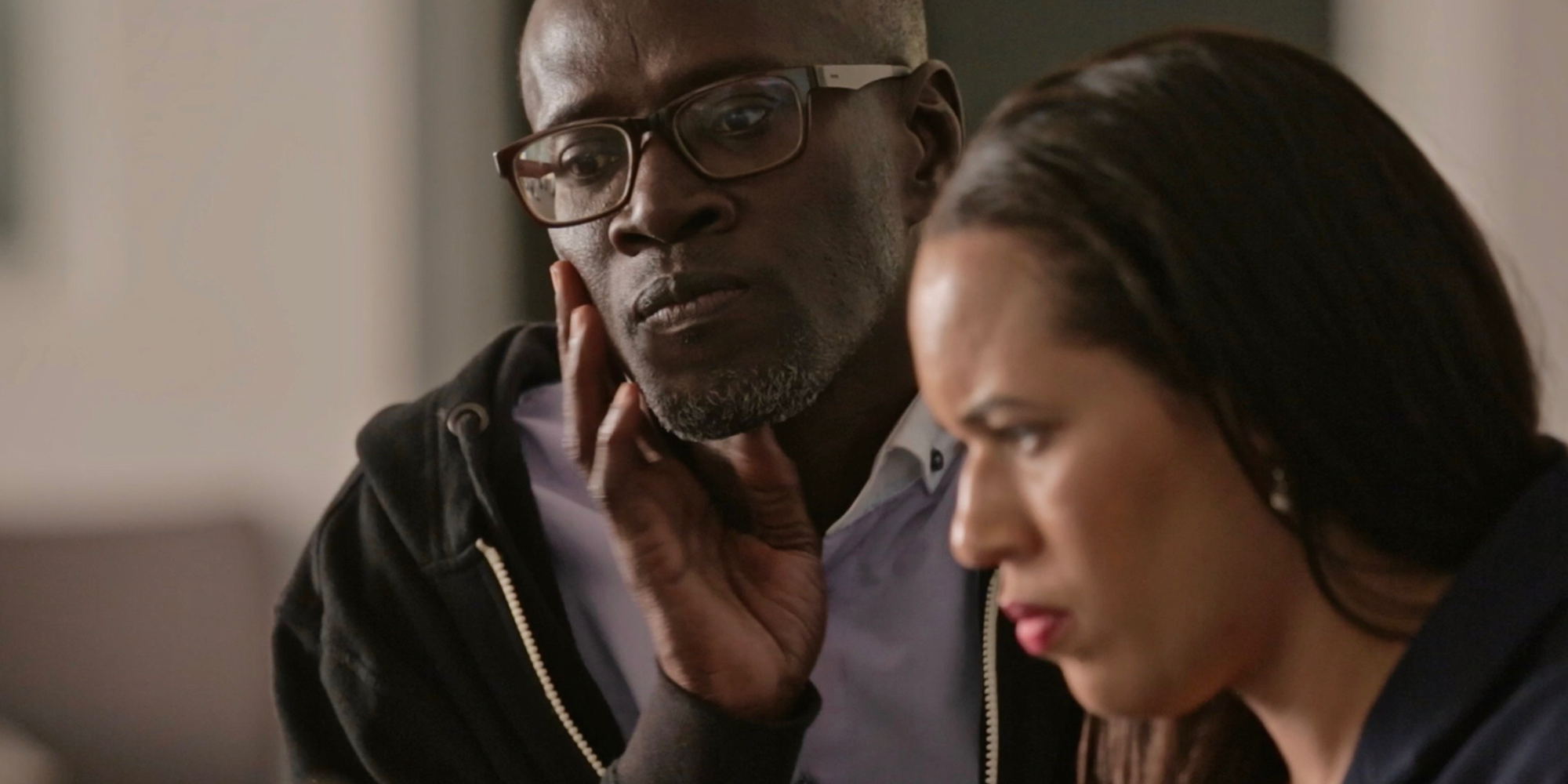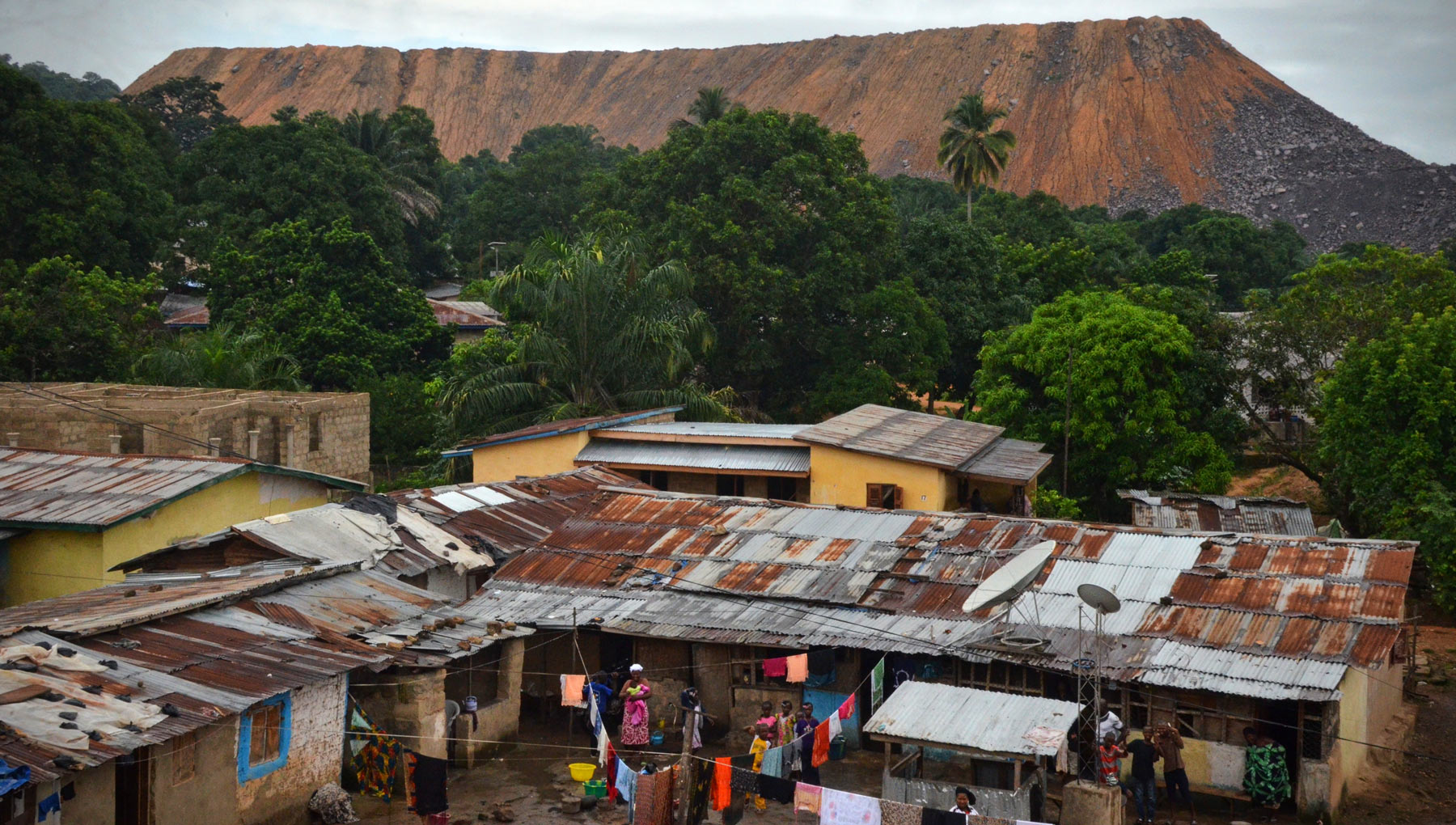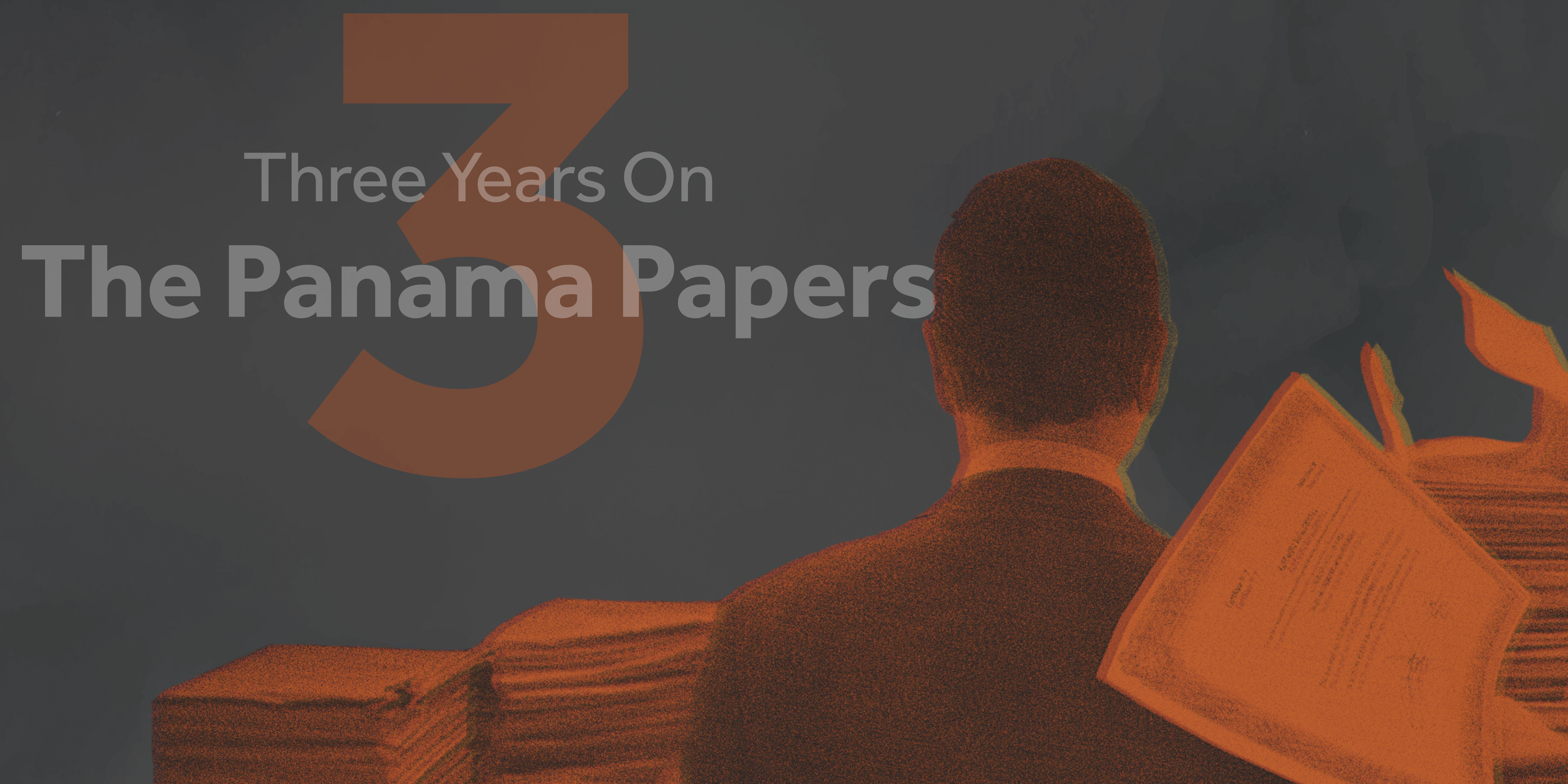The International Consortium of Investigative Journalists has hundreds of members across the world. Typically, these journalists are outstanding in their countries and have won many national and global awards. Our monthly series, Meet the Investigators, highlights the work of these tireless journalists.
This month we talk to Sandrine Sawadogo from Burkina Faso. Sandrine is one of ICIJ’s new members, joining in 2018. She worked on our award-winning West Africa Leaks and works in tough conditions to report on some of the region’s most important stories.
What are the most important investigations that you have done?
First, the Fatal Extraction project. I looked at employment problems and how mining companies treat their local employees compared to their European employees. I investigated the company Gryphon Minerals.
The other investigation was West Africa Leaks during which I worked with colleagues from the region. We wanted to know if there were politicians or businessmen who were in Panama Papers. I think it was the investigation that marked me the most.
The other investigation that really left its mark was my latest investigation about children who work in Burkina Faso cotton fields.
This is cotton that makes its way to Brussels, Belgium, and onto the international market. From there, it can be bought at astronomical prices even though children who work for it suffer. They don’t go to school. They have health problems.
It touched a nerve with me. On one hand, the reaction inside my country was pretty mixed. For many readers, we should let these children work to look after their families.
On the other hand, especially when [Swiss human rights NGO] Solidar Suisse republished the investigation, there was a global reaction. Solidar Suisse is now speaking with the agricultural company Louis Dreyfus to address the situation. There is a challenge to multinationals to pay more attention to the quality of the cotton and to the people who work there.
What does investigating mean to you?
It is about discovering and exposing what isn’t working in the hope that, with us [as journalists] as the fourth estate, the three others will pick up where we leave off and change things.
What are the biggest challenges for investigative journalism in Burkina Faso?
One big problem with investigations in Burkina Faso is that investigative journalism isn’t very well regarded. We’re used to being treated either as members of the opposition or as journalists working on behalf of someone. We’re always seen as being paid by someone else.
Another is the lack of training or ‘coaching.’ It’s true that there is a lot of training on offer and there are a lot of trainers who come [to our countries]. But there’s no real follow-up. We lack proper coaching.
If you had a magic wand, what would you do to develop investigative journalist in the region?
It would be to have a dedicated coach. Someone who knows the journalists’ difficulties, who knows the situation in which we work, who knows the gaps in our knowledge — of which there are many.
I’d also use a magic wand to reassure us of our safety; to create a big umbrella that could protect us.
What is important for other reporters and readers to know about investigative journalism in Burkina Faso?
To be an investigative journalist in Burkina Faso is to fight against the vicissitudes of daily life.
We have electricity cuts two or three times a day, especially throughout April and May, and even June. In one week, we can have four or five power cuts that last half a day. It means working without electricity. And working with an internet speed equivalent to, basically, nothing.
I think it’s been a least a week since we tried to record this interview – that tells you everything you need to know!
In my country, there are two media outlets focused on investigative journalism. L’Economiste du Faso, the newspaper at which I work, isn’t one of them. We report on economic information, and, little by little, we are throwing ourselves into investigations.
I also work as the newsroom manager. So, for me, investigations come after my daily tasks. This is different from journalists elsewhere with dedicated teams for investigative journalism and where journalists can take as much time as they like.
I don’t get financial support unless I do an investigation when I apply for an investigative project, which I don’t like. Most investigations that you take on are investigations financed by a third party. For your own investigations, it takes more time and more resources. It’s difficult for us to be financially independent.
Being a female investigative journalist in West Africa is a rarity. – Sandrine Sawadogo
What are the challenges of accessing information in Burkina Faso?
In Burkina Faso, like in other West African countries, accessing data is difficult.
When we participated in the Panama Papers, we saw in the United States how you could request information or consult information online. In a country like Burkina Faso, however, even our government websites don’t work or they are five years old.
Sure, we have a freedom of information law and you can make a request for data. But you might never get a reply.
In a recent case, I asked for documents from 2007 to 2018 from the office that deals with car number plates. They responded quickly, which was rather remarkable. But they told me that the period for which I was asking information doesn’t exist because there was a fire. The data had disappeared.
Despite all of that, what is special about Burkina Faso is that we can get our hands on some pretty interesting documents from sources. It’s a true skill of investigative journalism in West Africa.
Let me give you an example. I’ve been after documents about property allotments in a part of Ouagadougou, the capital of Burkina Faso.
For a month, all my efforts had been in vain. So I found a source. I found out that this area I’m interested in was subject to an audit in 2017. A private company conducted the audit and forwarded it to the anti-corruption office.
So I found the archivist of the anti-corruption office and asked to see the records.
This is pretty much how we do things in Burkina Faso. It’s not enough to go to the primary source. You have to find the fifth, sixth or even the eighteenth source to help you access that data.
What is it like being a female journalist in West Africa? What are the challenges for a female journalist?
Being a female investigative journalist in West Africa is a rarity. I’m trying to think of fellow female reporters but, for the moment, I’m the only female investigative journalist in Burkina Faso.
There are many challenges. The first of them that I’ve had to deal with is respect.
In general, when you introduce yourself as a journalist in Burkina Faso, all doors are open to you. In general, there are no problems, we like journalists here. Although when you introduce yourself as an investigative journalist, there is a little reticence.
But it’s worse when you introduce yourself as a female investigative journalist. The first thing they ask you is, ‘Are you serious?’ As a woman, they can’t even imagine that you can do an investigation. It’s a huge first challenge to overcome because a woman is considered a weak creature, a fragile creature to be protected.
You have to work to get people’s respect. Not only of the readers who read your work but also of your sources. Most of the time they will say, ‘No way, I’m not giving that information to a woman because she can’t keep a secret.’
Or they’ll say, ‘Even if I give this to you, people will know it was me because we met here or there and women don’t know how to play fair or because women don’t know how to play this kind of subtle game.’ Women are seen as always open, always honest and as people who can be easily ‘had.’
The biggest challenge is to face down the laughs, the snide remarks, especially from male journalists.
What should you do to protect yourself and who should you speak to before starting an investigation?
You should find someone who knows about the investigation and who knows what you are up to. Most of the time that will be someone unrelated to your work – maybe a friend or a brother.
Check-in with this person every day at a specific time. Share every document and all the data that you’ve gathered to ensure that whatever happens to you there will be a copy of your work and everyone will know where you were headed.
There’s another form of protection, although some people think it isn’t very useful.
I rarely sign my article with my real name. Often, people say, ‘It’s because you’re afraid.’ But it’s less a question of fear and more one of responsibility. Given my role in my organization, which involves meeting lots of people, including advertisers, I often find myself investigating these same people.
Signing under a different name is a way to separate these two people. One is the investigative journalist who is a separate investigator with a distinct way of working. On the other side is the journalist and the newsroom editor who has a role to sell her newspaper. I never combine the two.
The computer I use for investigations is different from the computer I use daily at the office. The telephone number I use for investigations is different from my office phone. My Skype account is different. My email is different and I use encrypted email. All these little details that help protect me as a journalist.
What advice would you give to someone who wants to become an investigative journalist?
Investigative journalism requires a lot of toughness. It’s a job where you work without stopping.
You pretty much have no time for family and you have very few friends. Often you’ll find that you’re investigating friends of your friends or the boss of your friends. Or even the family of your friends.
You have to accept the difficulties, the challenges and the lack of money, the criticisms of your parents, of your partner, even of your children.
Aside from all of that, it’s wonderful. I haven’t found a better job than being an investigative journalist!



